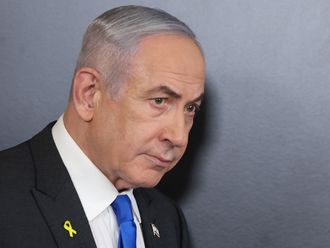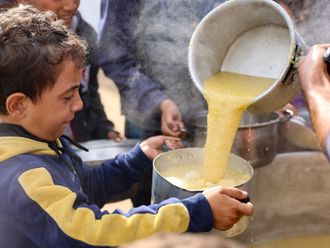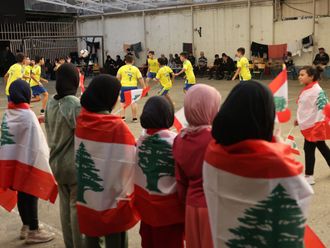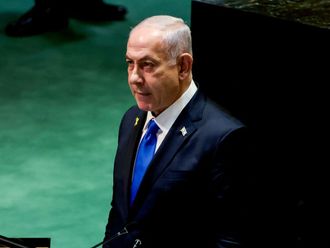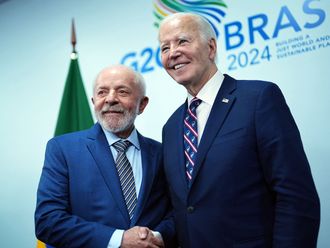Paris: France has started providing direct aid and money to five rebel-held Syrian cities as it intensifies efforts to weaken President Bashar Al Assad, in the first such move by a western power, a diplomatic source said Wednesday.
The French aid comes as UN Secretary-General Ban Ki-moon criticised the Security Council on Wednesday for failing to take action to protect Syrians facing violence that has led to thousands of deaths.
Amid mounting calls for the international community to do more to prevent bloodshed, France - Syria’s onetime colonial ruler - has pushed to secure “liberated zones” in Syria.
France has increased its contacts with armed opposition groups, and started giving aid last Friday to local citizens’ councils in five cities outside the government’s control, the diplomatic source said. French Foreign Minister Laurent Fabius promised last week that such aid was in the pipeline.
The aid is notably helping restore water supplies, bakeries and schools affected by Syria’s civil war, with the aim of helping rebel-held areas run themselves, the diplomatic official said. He spoke on condition of anonymity because of the sensitivity of the French actions amid Syria’s violence.
France’s allies are interested in providing similar aid, the official said. He would not name the cities or explain how the aid is being provided, citing security reasons. He said the cities house a total of 700,000 residents and have been outside control of President Bashar Al Assad’s regime for between one and five months.
French officials have acknowledged providing communications and other non-lethal equipment to Syrian rebel forces, but say they won’t provide weapons without international agreement. France played a leading role in the international campaign against Libya’s dictator Muammar Gaddafi last year.
At the UN General Assembly, Ban demanded urgent action to protect Syrians now fleeing the country in record numbers. “We have seen the immense human cost of failing to protect,” he said.
In January, the death toll from the Syrian conflict - which began in March 2011 as a peaceful protest against President Bashar Al Assad’s regime - was approaching 6,000. Activists now put the death toll at between 23,000 and 26,000.
At a UN summit in 2005, world leaders agreed that governments have a collective responsibility to protect people from genocide, crimes against humanity, war crimes and ethnic cleansing. The concept arose from the Second World War Holocaust, the killing fields of Cambodia in the late 1970s and the genocides in Rwanda in 1994 and Srebrenica in 1995.
The Security Council’s paralysis on Syria has its roots partly in how the responsibility to protect has been used.
Last year, the Security Council authorised measures to protect civilians from attacks by Gaddafi’s forces in Libya. Russia and China then complained that Nato went beyond the council’s mandate.
Since the Syrian conflict erupted, Russia and China have strongly allied themselves with the Syrian government and have vetoed three Western-backed Security Council resolutions demanding that his forces end the violence and threatening sanctions if they didn’t.
Ban told the General Assembly that “inaction cannot be an option for our community of nations.”
Germany’s UN Ambassador Peter Wittig, the current Security Council president, told a news conference Wednesday that the Security Council has not been united on crucial questions to deal with the Syrian crisis.
“But that doesn’t mean that we simply cease to discuss this crisis,” he said.


